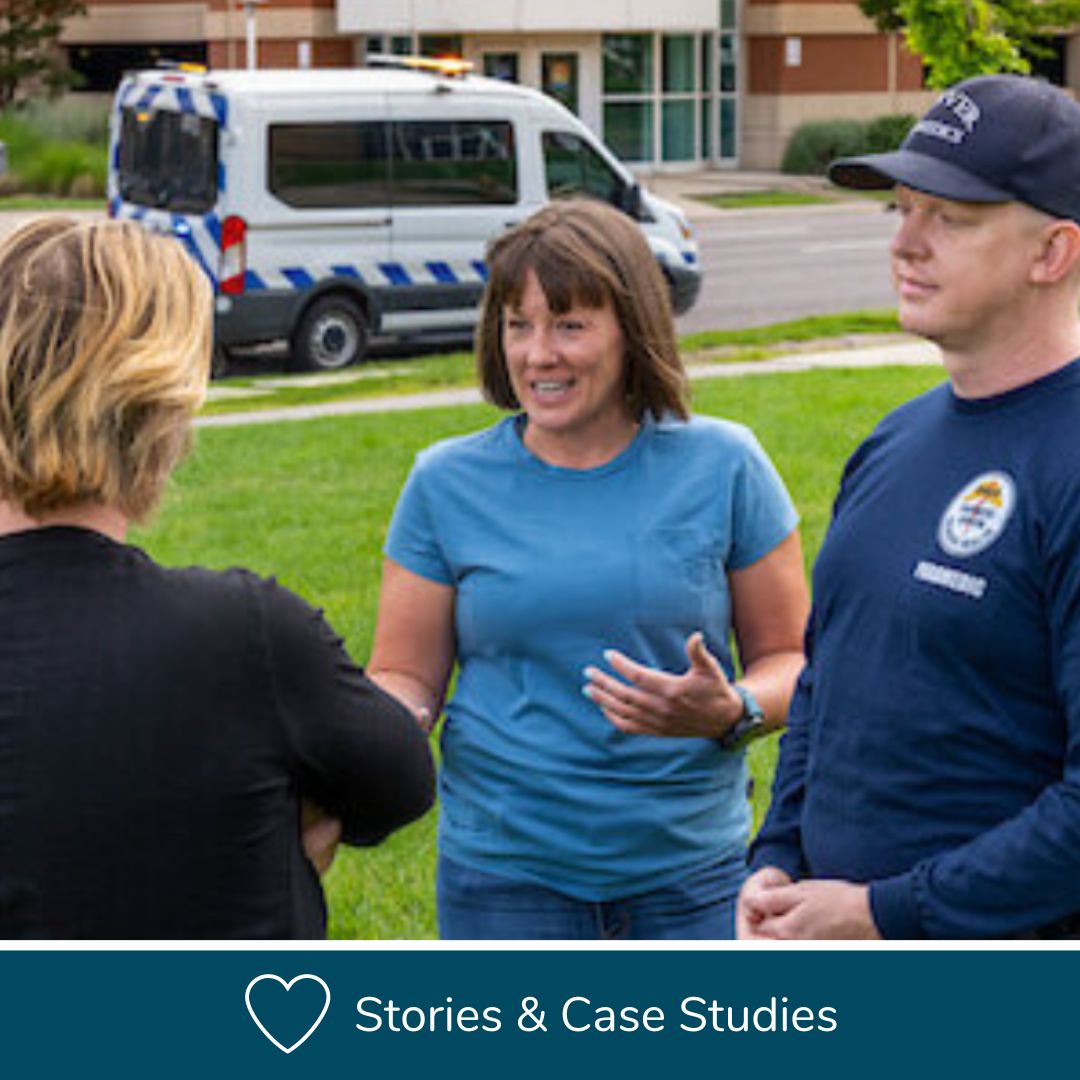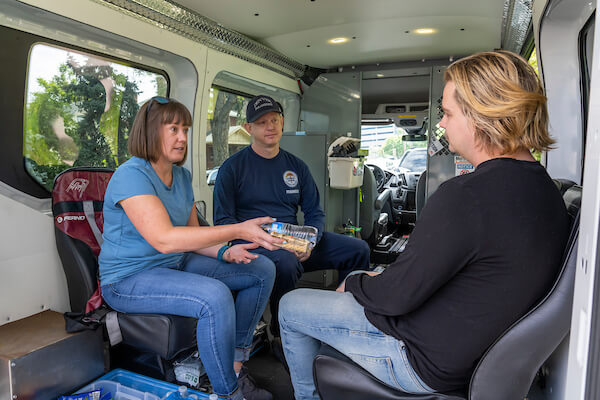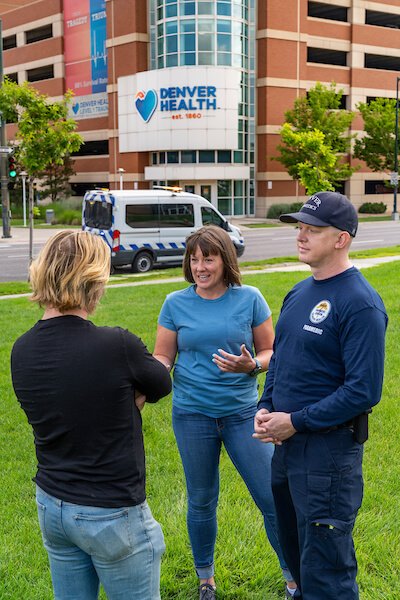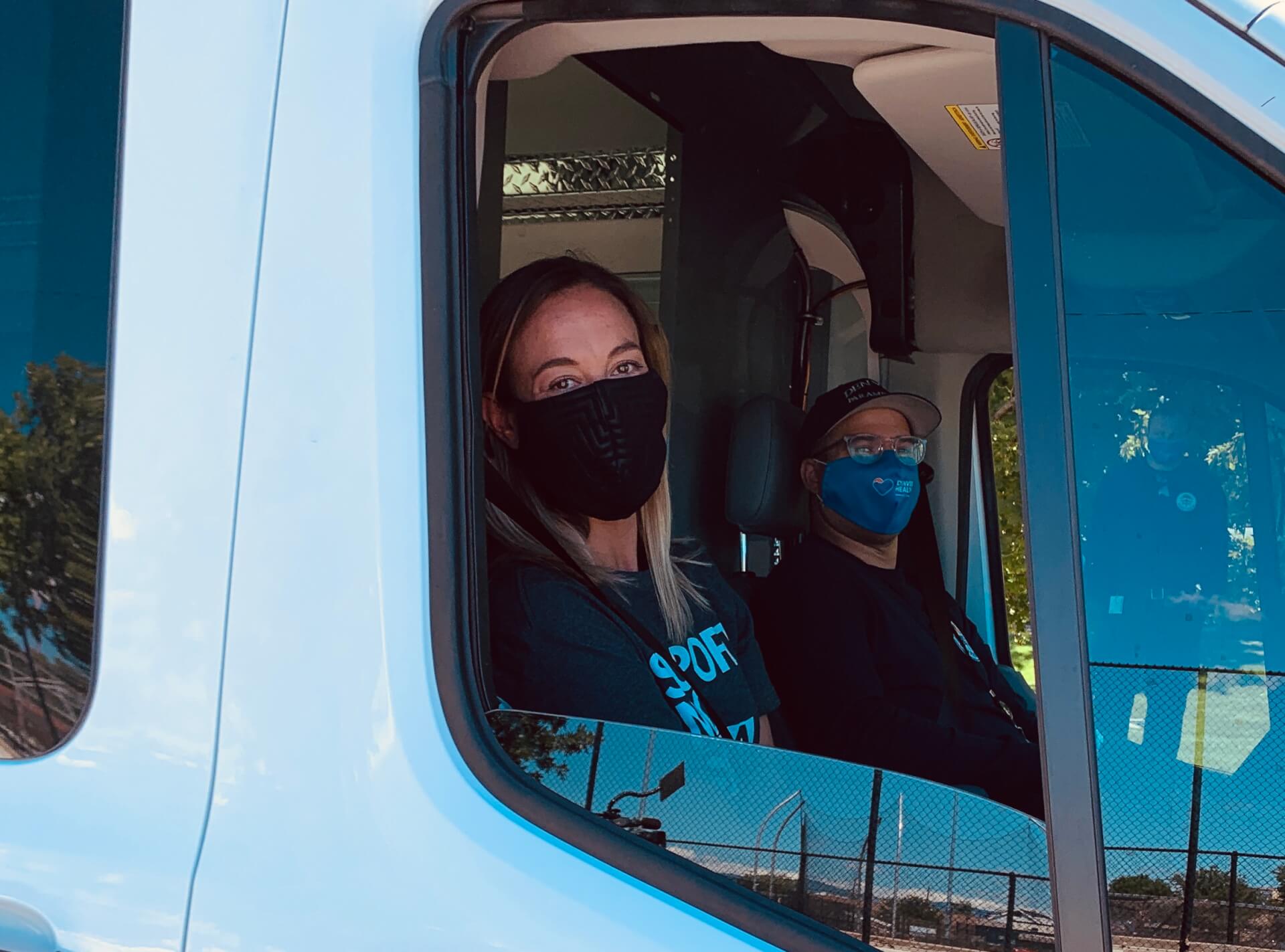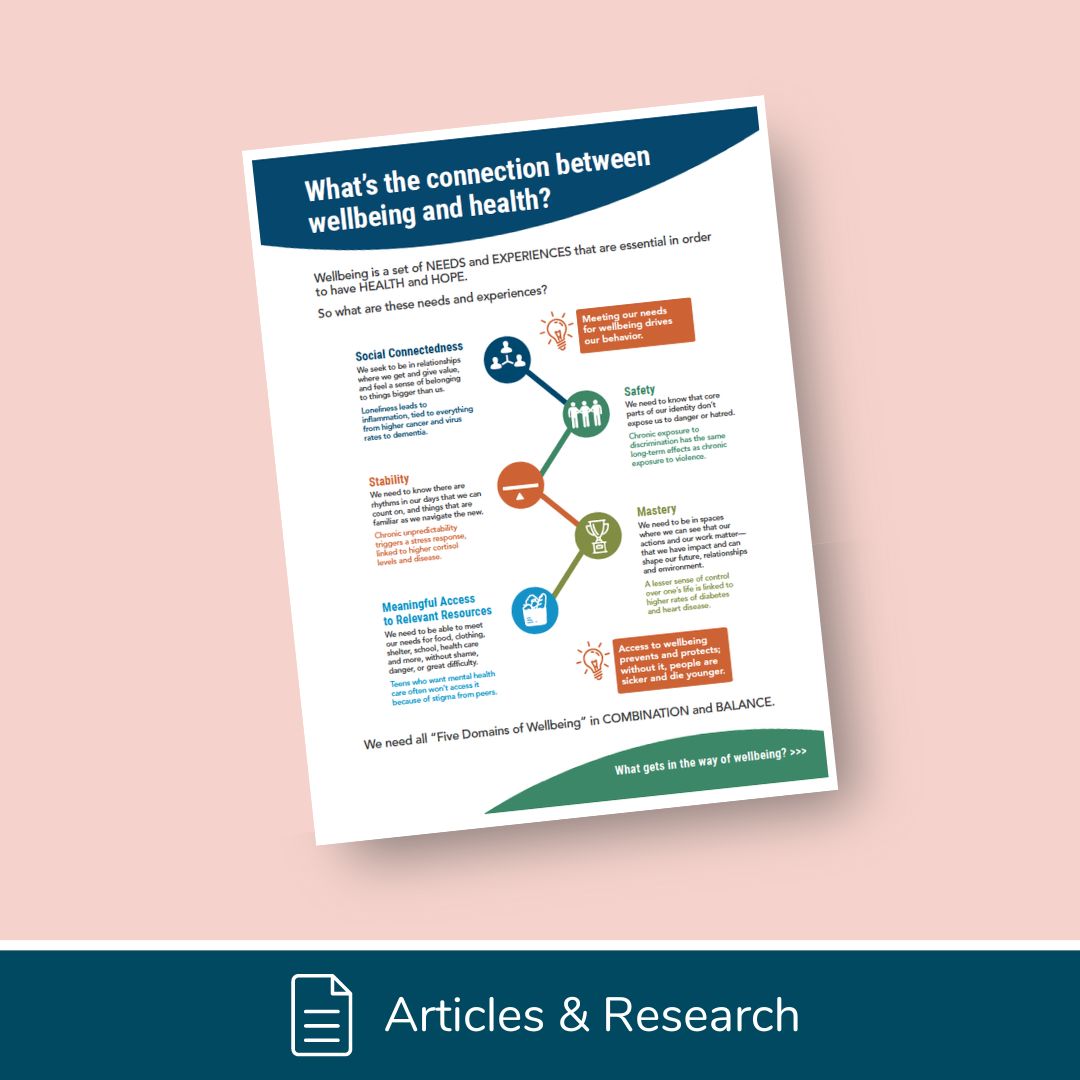Not all 911 calls require a police response. Denver’s STAR program is changing the way people experiencing homelessness, mental health concerns and poverty interact with the emergency care system by moving case workers out of the periphery and into the community.
The Problem
Denver’s 911 system receives more than one million calls every year. In 2020, there was a sharp, sudden increase in calls relating to mental health or safety. While typically 911 calls are filtered through the police or emergency medical services, a significant number don’t require a response from either. In order to better serve the community, increase efficiency and save costs, Denver began thinking about new ways to respond to 911 calls that were lower level crises in nature.
The Solution
Rather than answering each 911 call with the same, one-size-fits-all response, Denver created the Support Team Assisted Response (STAR) program in 2020 to provide an alternative for people experiencing mental health crises.
Adapted from the White Bird Clinic’s Crisis Assistance Helping Out On The Streets (CAHOOTS) program in Eugene, Oregon, STAR deploys teams of emergency responders to provide person-centric mobile crisis response. Teams include Emergency Medical Technicians, Behavioral Health Clinicians and caseworkers who are trained to assist individuals experiencing any crisis related to mental health issues, poverty, homelessness and substance use. Teams also provide connections to resources and treatment, as well as identify gaps in services.
The Impact
During the first six months, STAR responded to a total of 748 calls – none of which required the assistance of the police or resulted in arrests. Denver police responded to nearly 95,000 incidents in the same period, suggesting that an expansion of STAR could reduce police calls by nearly 3%. Most calls during the pilot were for trespassing and welfare checks. Approximately 68% of people assisted were experiencing homelessness, and 61% of calls were triggered over mental health concerns.
STAR is changing the way people experiencing homelessness, mental health concerns and poverty interact with the emergency care system. Instead of being confronted by a loud police vehicle and armed law enforcement officers, people in crisis are greeted by an unassuming van with responders in street clothes, making the experience of receiving help calmer and more comfortable. Instead of bringing someone to jail or the Emergency Department, only to be released or discharged into the same circumstances, STAR assesses the individual’s needs and then makes an informed decision about which resources may be the most appropriate. Responders are also proactive – if they see someone on the side of a road that could benefit from their assistance, they stop and check in. The end result is an emergency response that takes the whole person into account in order to address the root causes of mental health crises.
